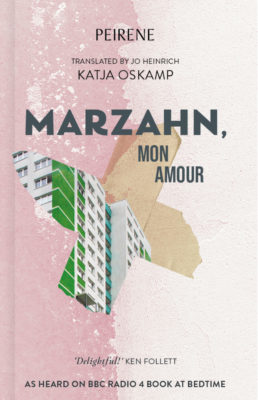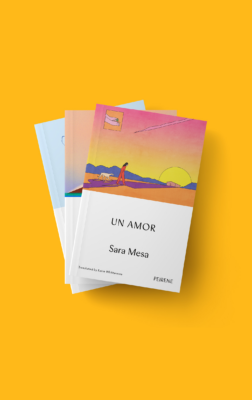
Body Kintsugi
by Senka Marić
£12.99
Kintsugi is the Japanese art of repairing broken ceramics with liquid gold, to highlight and celebrate an object’s past. In this powerful and personal novella, Senka Marić uses the concept of kintsugi to interrogate ideas of illness, survival and recovery.
Two months after her husband packs his bags and leaves the family home, the narrator finds a lump in her armpit. It’s a discovery she’s been dreading ever since her mother’s breast cancer diagnosis sixteen years earlier, and one that will change her body forever. Through diagnosis, chemotherapy, and surgery, the narrator returns to those moments of her girlhood when she learnt to be ashamed of her sexuality and estranged from her body – the same body that now threatens to fall apart during her illness. Laced with a drive for life, sensuality and pleasure, Body Kintsugi is an intimate and optimistic book about a woman’s relationship with her body as it breaks and is put back together.
Translated by Celia Hawkesworth
168pp, paperback, £12.99
ISBN 978-1-908670-73-1
Publication date: 4 October 2022
Co-funded by the Creative Europe programme of the European Union
![]()
Press & Reviews
‘A raw and moving book, written in exquisite, taut prose, which explores illness and healing through an inventive, kaleidoscopic narrative.’ Sam Mills, author of Chauvo-Feminism and The Fragments of My Father
‘As a revelatory account of illness, the novel stands alongside Anne Boyer and Audre Lorde, while the sensuous intelligence of the prose, in Celia Hawkesworth’s astonishing translation, reminded me of Virginia Woolf. It’s a wonderful book.’ Caleb Klaces, author of Fatherhood
‘A brave book written from personal experience that offers us much-needed hope in the victory of life over death.’ Faruk Šehić, author of Under Pressure and Quiet Flows the Una
'It's a beautiful, tender and moving exploration of illness and healing.You know when you read a book and wished that you'd written it? This is that book for me.' Nataliya Deleva, author of Arrival
‘The writing is intimate — patient, sensory, murky — a portrait of consciousness under duress.’ Stacy Mattingly, Literary Hub
'Utterly immersive and propulsive, with a style and structure that defy comparison.' Regan Mies, Necessary Fiction
'Marić’s writing is intimate and visceral [...] Sometimes humorous, often heart-breaking, Body Kintsugi is above all unexpectedly gripping, inviting the reader to step into the main character’s shoes and take up arms in the fight to reclaim her body.' Eleanor Updegraff, Lunate
'Through all that is quiet, delicate and unimposing, Marić has honored the vibrant, silent energy that the body contains, bringing it to the page in its truest form. Her strength and vitality in the face of struggle is anything but cliché: it is complicated, beautiful, and moving.' Katarina Gadže, Asymptote Journal
About The Book
Translator
Celia Hawkesworth taught at the School of Slavonic and East European Studies, UCL, from 1971 to 2002. She began translating fiction in the 1960s and to date has published some 40 titles. Recently she has been translating works by Daša Drndić: Belladonna was shortlisted for the EBRD Literature Prize 2018 and the Oxford-Weidenfeld Translation Prize 2018, and won the Warwick Prize for Women in Translation 2018. EEG won the Best Translated Book Award in 2020 and the AATSEEL Best Literary Translation Prize in 2021. Her translation of Ivo Andrić’s Omer Pasha Latas won the Oxford-Weidenfeld Translation prize in 2019.



